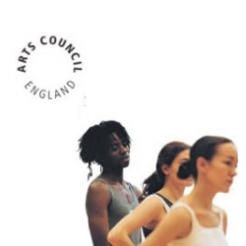Arts Council England has warned that some of its existing partners will not be funded in future as it unveils details of its funding programme for 2015-18.
The organisation, which is funded by DCMS and National Lottery money, expects its budget for its national portfolio organisations and major partner museums will be reduced by 5 per cent in the funding round which begins in 2015. This follows a 5 per cent fall in the funding settlement to the Arts Council following the latest government spending review.
The national portfolio organisation and major partner museum funding schemes form a large part of a suite of funding streams operated by the Council to support cultural institutions in England. The 'Renaissance' major partners museums programme is worth £20m a year. There are presently 696 national portfolio organisations which share £956m over the 2012-15 period (a further £54m and £31m of lottery money is used for these organisations to support touring and youth projects).
But while Arts Council England will likely have a reduced number of national portfolio partners and major partner museums, those which do make the grade will only have funding guaranteed for the first year of its three-year funding period. A number of arts charities last year claimed to have gone under as a result of losing core support from the Council.
'Above-average settlement'
Alan Davey, Arts Council England chief executive, repeated his previous comments that the settlement from government was “above average”, but that this cut and the long-term reduction in funding would have a knock-on effect on its support for other organisations.
“There will be an impact from our reduced investment – some organisations will lose funding – but we are confident that we can preserve a strong ecology for the arts and culture across England,” he said.
The organisation indicated it will welcome applications from organisations which have not been funded before, and that it will not be spreading the cuts across the board.
“There is no benefit in salami-slicing and spreading the funds too thinly to make a substantial difference to anyone,” said Davey.
The organisation said it will continue its commitment to ‘additionality’ – whereby independent funders do not invest in projects that would otherwise be funded by the state – but that it will look to be more flexible with its National Lottery money.
A statement from the organisation read: “The Arts Council England recognises that cuts to local authority budgets mean that many are facing tough decisions which may have an impact on arts and culture in their areas. During the investment process the Arts Council will work closely with local authorities and other relevant partners to make informed decisions.”
In a sign of the times, in May the Arts Council announced it was transferring some of its existing operations to a new community interest company which would be able to bid directly for funding from another National Lottery-funded grantmaker, the Big Lottery Fund.
Just last year the Council announced it planned to cut its staff numbers by one-fifth as a result of reduced income.
Organisations may apply for the 2015-18 funding round from January 2014.









